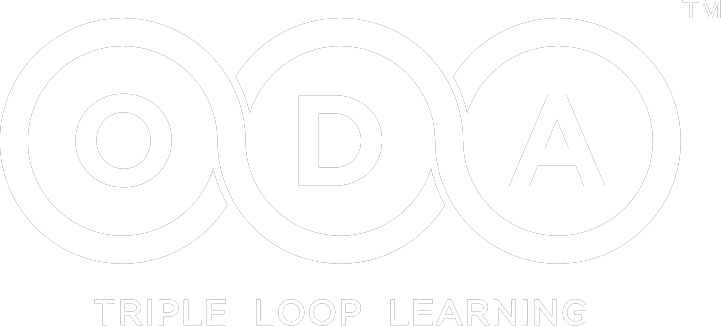A New Paradigm for HR: Roles that leverage Human Emotions


Krish Shankar
The problem with employee engagement
The word Employee Engagement and the literature surrounding it, often perplexes me. At times, I think this word, and all the accompanying ‘research’, is more of a commercial creation. Let’s go back to the basics: what keeps a person satisfied and motivated (Note, I have not used the word engaged). So what would keep us satisfied and motivated? From research, we know three things matter a lot:
- the work we do- the challenge and the learning in the work, and the contribution we can make
- the work environment, which is having a supportive manger, colleagues, a team where you like to work, and an organisation which agrees with your values, and lastly
- the right recognition, which signifies how your work is valued, how fair you think the rewards are for your efforts, and opportunities for growth.
Isn’t this all that we need to do? I think we have to keep the basics in mind, and not get our thoughts clouded with the hundreds of secret recipes for engagement!
The place of emotions
There is one word that would keep cropping up when people speak of engagement. Emotions. They would speak of ‘emotional’ connect. And ‘emotional’ attachment! As you dig deeper, they would tell you that ‘engagement’ is all about people’s emotions. And I wondered that if emotions are that important, why aren’t we tracking emotions? How could we keep emotions at the heart of what we do every day? That set me thinking that perhaps we are missing a trick here? If only we could bring emotions into the heart of our purpose in the human resource function, we might be able to solve the problem of employee engagement.
However, given the current times, with changing people’s needs and aspirations, and a dynamic and disruptive business environment, are emotions still important? There are a couple of questions we need to ask- why do we still need to ‘engage’ people? What’s wrong with the design of our HR systems and processes, that engagement is still a core issue in organisations?
One would assume that if our HR systems and processes were designed to keep people motivated, satisfied and engaged, shouldn’t it be doing so. There probably needs to be a rethink of how we design our HR processes, as some of our processes probably create threats for people, and that leads to disengagement. We need to question the philosophy behind our design, and to make that happen, we have to rethink the role of HR. The current conception of the role of HR is from an industrial era- we have now moved into a time where emotions and positive psychology have bigger relevance. As the world moves towards a more automated existence, the role of human emotions becomes even more critical for us to leverage. Therefore, we need a new paradigm for HR – something that is relevant for the future.
Affect, or in common man’s language, emotions, has a significant impact on people and organisations, but has often been under-researched and underestimated in the organisational context. Various researches have shown that discrete emotions have an impact on work performance at an individual level and on strategy implementation and business performance at an organisational level. And emotions and emotional intelligence, are becoming more important in the new automated economy.
The strategic transformation process has different stages, and different collective emotions are necessary for each of those stages. First, it is borne out by research that positive emotions of happiness and pride lead to superior performance. I further hypothesise that the collective positive emotions of happiness, pride, gratitude, interest, and optimism, as well as the negative emotions of dissatisfaction and uncertainty, as being necessary for different stages of strategy implementation and execution. For instance, during a start-up phase, emotions of excitement, interest and optimism are more relevant, whereas in the latter stages of scaling and optimising costs, the emotions of gratitude, pride and optimism may be relevant. Leaders have to be thinking more about the emotions of their teams, and consciously ensure that right emotions are created as appropriate.
We talk of the importance of culture, as most people say culture is more important than strategy. But what is culture? To put it simply, it is a mix of organisational routines and behaviours of people. Thus organisational routines are critical to build the right emotions and the right focus for organisations. I also look at HRM practices, as being a subset of organisational routines and therefore they could also impact collective emotions. In fact, the role of HRM practices takes considerable importance as we build emotional capability as a dynamic capability.
A New Paradigm for HRM
As I learnt from my past experience, it was clear that the ability to manage emotions at an organisation level was critical for successful business transitions, especially as organisations and teams manage radical strategic change. We also know that emotions have been underestimated and underleveraged in organisations, and that the latest research has thrown up a number of areas where organisations can benefit from our understanding of affect (Barsade, 2005).
Given the strong link of organisational routines and leader behaviour to building emotional capability, and its strong connection with HRM, I propose that HRM takes the lead in bringing this new understanding of affect, collective emotions, strategy implementation and emotional capability for the benefit of organisations.
Traditional definitions of the role of HRM have been very process-oriented and administrative, not focussing on the role as much. The first definition of HRM from a role perspective was proposed by Ulrich in the model of HR Champions. As we all know, the model described 4 roles of HRM- as Administrative expert, Employee champion, Change Catalyst and Strategic partner. While that definition has helped transform HRM in the current day, it has its drawbacks. First, HRM has changed significantly over the years and these roles are no longer relevant at times. With outsourcing and automation, the role of administrative expert is no longer relevant. The concept of change catalyst and strategic partners have been long ingrained as part of the role given the fast changing business context and have now become commonplace. Moreover, in the light of the new literature on organisation and employee engagement and the future business context, the framework for a new role for HRM needs review.
Based on the insights from my experience and analysis, and having observed the importance of emotions and the reasons for most negative emotions, I am proposing a new model to articulate the role of the HRM function in any organisation in the future. The future role of HRM function would be in three buckets:
- Designing and executing HRM processes that are just and fair: As a reflection of the current times, fairness and organisational justice are becoming critical. From my study, I found that the biggest cause of negative emotions was the obvious perception of the lack of fairness in organisational processes. Areas of diversity, gender pay gap, biases in career growth are all gaining a lot of focus. Therefore, the key role of HR would be to design HRM processes that are fair and just and the CHRO should take personal responsibility of creating a fair and just organisation. The following would be the key points of consideration to ensure a fair and just organisation:
- Does the organisation have fair and just processes
- Do people have clarity on the processes
- Does the organisation do a regular audit to check if the processes are fair and just
I call this role the Fair Process Designer and Advocate
- Defining, on boarding and developing the right talent needed to grow the business: regularly articulating and defining the skills, competencies and mindset of talent needed for the organisation to succeed in the future world, and attracting, hiring and onboarding such talent, and also putting in place a strong talent development mechanisms to develop internal talent in line with future needs would be one of the key roles of the HRM function. The right talent at the right time in the right roles is critical for the success of the organisation. In line with the fairness principle stated above, internal talent should have the same opportunities and means to grow and progress, with respect to external talent. The key considerations for the HRM function in this area are:
- What kind of talent do we need? When? In which roles?
- How do we develop them internally?
- How do we attract, hire and onboard them?
- How do we renew and keep the talent relevant for the future?
I call this role the Talent Diviner and Partner
- Articulating the collective emotions needed in each business unit/team at different stages, and helping create those emotions: the HRM function has to help leaders and business teams decide the kind of emotions they need given their particular situation, and put in place organisational routines and HRM practices to build those collective emotions, and ensure that leaders demonstrate the right behaviours to support those emotions. As we saw in my empirical study, the right collective emotions at the right stage, supported by leader emotion management behaviours, make a big difference to the organisation’s success. And organisational routines and HRM practices play a big role in building those emotions. Therefore, helping create the right collective emotions has to be a key role for the HRM function.
The following would be the key considerations that the HRM function needs to find solutions in this area:
- What collective emotions are needed in each part of the business given their challenges and the different stages they are in?
- What organisational routines and HRM practices are needed to build those collective emotions?
- What leader emotion management behaviours are needed to support this?
- How do we coach leaders to proactively manage the emotions needed in their teams?
I call this role the Emotions Architect and Coach.
Conclusion
In these times of change, there is a serious need to review our paradigm of HRM. We have to acknowledge and leverage emotions of our people to achieve relevant goals. Therefore, I would propose a new framework for HRM by articulating these 3 new roles. The diagram below captures this new framework, which I propose as a guide to all organisations in focussing their HRM function.
I believe this new focus for the HRM function would enable it to prioritise on the essentials needed in contemporary times.
Please click here to download the latest OD PUBLICATION.

